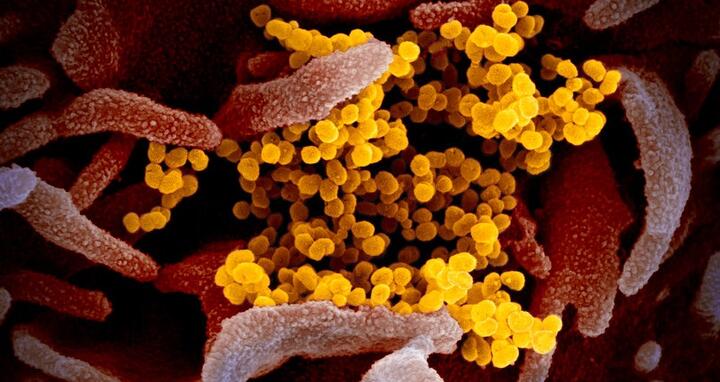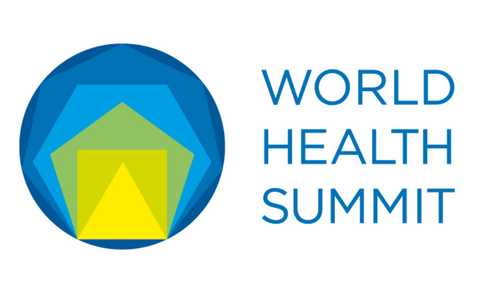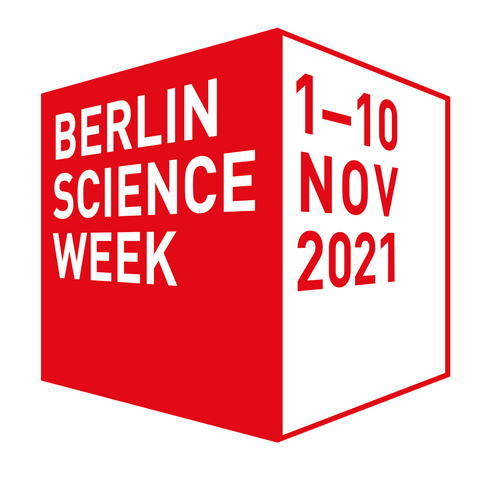📺 COVID-19: Lessons from the pandemic
At first, COVID-19 appeared to damage mainly the lungs. This view changed rapidly – the entire body is affected by the disease and we are still learning the details. At Berlin Science Week, a panel will discuss why the cardiovascular system seems to be especially vulnerable. And while this pandemic is far from over, we already need to get ready for future threats. Prototype vaccines might be one way to think ahead. At World Health Summit, MDC’s Michela Di Virgilio and the Helmholtz Immunology & Inflammation Initiative presented a panel with experts from both sides of the atlantic who work to improve our pandemic preparedness. Both events are open to everybody. The details:
World Health Summit – Thinking Ahead: Prototype Vaccines
Sunday | October 24th, 2021 | 11:00 a.m. – 12:30 p.m. | video
While SARS-CoV-2 vaccines have been developed and approved within less than a year, this achievement built on decades of basic research. Equally important was massive financial support, accelerated administrative procedures and rapid increase in production capacity. Yet, important challenges remain. How can we deal more effectively with pandemics? Could we contain initial outbreaks? One approach might be developing prototype vaccines. But how efficient can these be? Can we learn from our experience with SARS-CoV-2 and prepare novel vaccine platforms allowing even faster vaccine development and clinical approval? In this session, renowned experts from Europe and the USA will discuss ongoing work, its feasibility and its potential impact on global health.
Hosts
- Max Delbrück Center for Molecular Medicine in the Helmholtz Association (MDC)
- Immunology & Inflammation Initiative (I&I) | Helmholtz Association
- Corona Virus Pathogenesis Project (CoViPa) | Helmholtz Association
Chairs
- Professor Michela Di Virgilio, Max Delbrück Center for Molecular Medicine in the Helmholtz Association (MDC)
- Professor Ralf Bartenschlager, Department of Molecular Virology at the German Cancer Research Center (DKFZ)
Panelists
- Professor Florian Klein, Institute of Virology at the University of Cologne, Germany
- Professor Rino Rappuoli, GlaxoSmithKline, Italy
- Professor Robin Shattock, Future Vaccine Manufacturing Research Hub at the Department of Infectious Diseases, Imperial College London, UK
- Dr. Nancy Sullivan, Vaccine Research Center, National Institutes of Health, NIAID, USA
- Professor Annelies Wilder-Smith, London School of Hygiene & Tropical Medicine (LSHTM), UK
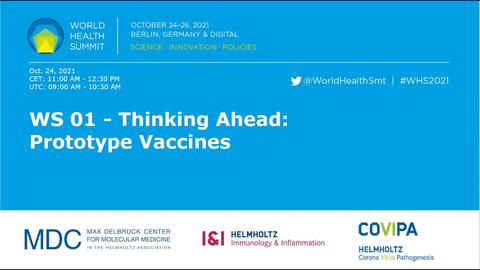
Vaccines are the major cornerstone to control pandemics. This has been demonstrated in the past for instance by the eradication of poxvirus or the global control of poliomyelitis. Given the long history of vaccines, established pipelines for their development and production have been developed. The still ongoing COVID-19 pandemic has enriched this pipeline and although SARS-CoV-2 vaccines have been developed and approved within less than a year, this major achievement built on decades of basic research. Equally important was the massive financial support, accelerated administrative procedures and rapid increase in production capacity. Yet, important challenges remain such as the global distribution of vaccines and insufficient vaccination rates in countries where these vaccines are available.
Berlin Science Week – Cardiovascular Health in the time of COVID-19
Friday | November 5th, 2021 | 6:00 – 8:00 p.m. | online discussion
COVID-19, caused by a severe acute respiratory syndrome coronavirus 2 (SARS-CoV-2), has become a pandemic that has affected the lives of the entire human population. The panel, composed of Berlin-based experts in basic, translational and clinical science focused on cardiovascular disease and immunology, will discuss three key aspects: 1) How are pre-existing cardiovascular conditions associated with worse outcomes and increased risk of death in patients with COVID-19? 2) How can COVID-19 itself induce cardiovascular disease, such as venous thromboembolism, high blood pressure, acute coronary syndrome, myocardial injury, and arrhythmia? 3) And how we can minimize all these risks by vaccination?
Hosts
- Springer Nature
- Max Delbrück Center for Molecular Medicine in the Helmholtz Association (MDC)
- Berlin Institute of Health at the Charité (BIH)
- Charité – Universitätsmedizin Berlin
Panelists
- Professor Holger Gerhardt, Max Delbrück Center for Molecular Medicine in the Helmholtz Association (MDC), Berlin Institute of Health (BIH) at Charité and DZHK (German Center for Cardiovascular Research) Partner Site Berlin
- Professor Michael Potente, Berlin Institute of Health (BIH) at Charité and Max Delbrück Center for Molecular Medicine in the Helmholtz Association (MDC)
- Professor Leif Erik Sander, Department of Infectious Diseases and Respiratory Medicine, Charité – Universitätsmedizin Berlin
- Professor Birgit Sawitzki, Berlin Institute of Health (BIH) at Charité and Institute of Medical Immunology, Charité – Universitätsmedizin Berlin
- Dr. Emanuel Wyler, Max Delbrück Center for Molecular Medicine in the Helmholtz Association (MDC)
Moderation
Dr. Vesna Todorovic, Chief Editor, Nature Cardiovascular Research
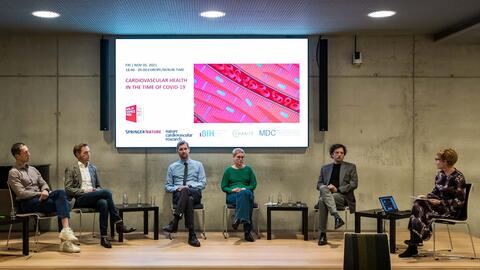
#COVID19, caused by a severe acute respiratory syndrome coronavirus 2 (#SARSCoV2), has become a global #pandemic that has affected the lives of the entire human population. The panel, composed of Berlin-based experts in basic, translational and clinical science focused on cardiovascular disease and immunology, discusses three key aspects:
How are pre-existing #cardiovascular conditions associated with worse outcomes and increased risk of death in patients with COVID-19? How can COVID-19 itself induce cardiovascular disease, such as venous thromboembolism, high blood pressure, acute coronary syndrome, myocardial injury, and arrhythmia? And how can we minimize all these risks by #vaccination?
Digital Session
Shortly before the event starts, the live stream start on the Berlin Science Week website. The event will be held in English.
Further information
- World Health Summit
- Berlin Science Week
- Immunology & Inflammation Initiative (I&I)
- Corona Virus Pathogenesis Project (CoViPa)
- Berlin Center for Translational Vascular Biomedicine (joint focus area of BIH, Charité and MDC)
- Corona research at the MDC
Contact
Jutta Kramm
Head of the Communications Department
Max Delbrück Center for Molecular Medicine in the Helmholtz Association (MDC)
+49-(0)30-9406-2140
jutta.kramm@mdc-berlin.de or presse@mdc-berlin.de
Max Delbrück Center for Molecular Medicine in the Helmholtz Association (MDC)
The Max Delbrück Center for Molecular Medicine in the Helmholtz Association (MDC) is one of the world’s leading biomedical research institutions. Max Delbrück, a Berlin native, was a Nobel laureate and one of the founders of molecular biology. At the MDC’s locations in Berlin-Buch and Mitte, researchers from some 60 countries analyze the human system – investigating the biological foundations of life from its most elementary building blocks to systems-wide mechanisms. By understanding what regulates or disrupts the dynamic equilibrium in a cell, an organ, or the entire body, we can prevent diseases, diagnose them earlier, and stop their progression with tailored therapies. Patients should benefit as soon as possible from basic research discoveries. The MDC therefore supports spin-off creation and participates in collaborative networks. It works in close partnership with Charité – Universitätsmedizin Berlin in the jointly run Experimental and Clinical Research Center (ECRC), the Berlin Institute of Health (BIH) at Charité, and the German Center for Cardiovascular Research (DZHK). Founded in 1992, the MDC today employs 1,600 people and is funded 90 percent by the German federal government and 10 percent by the State of Berlin.

